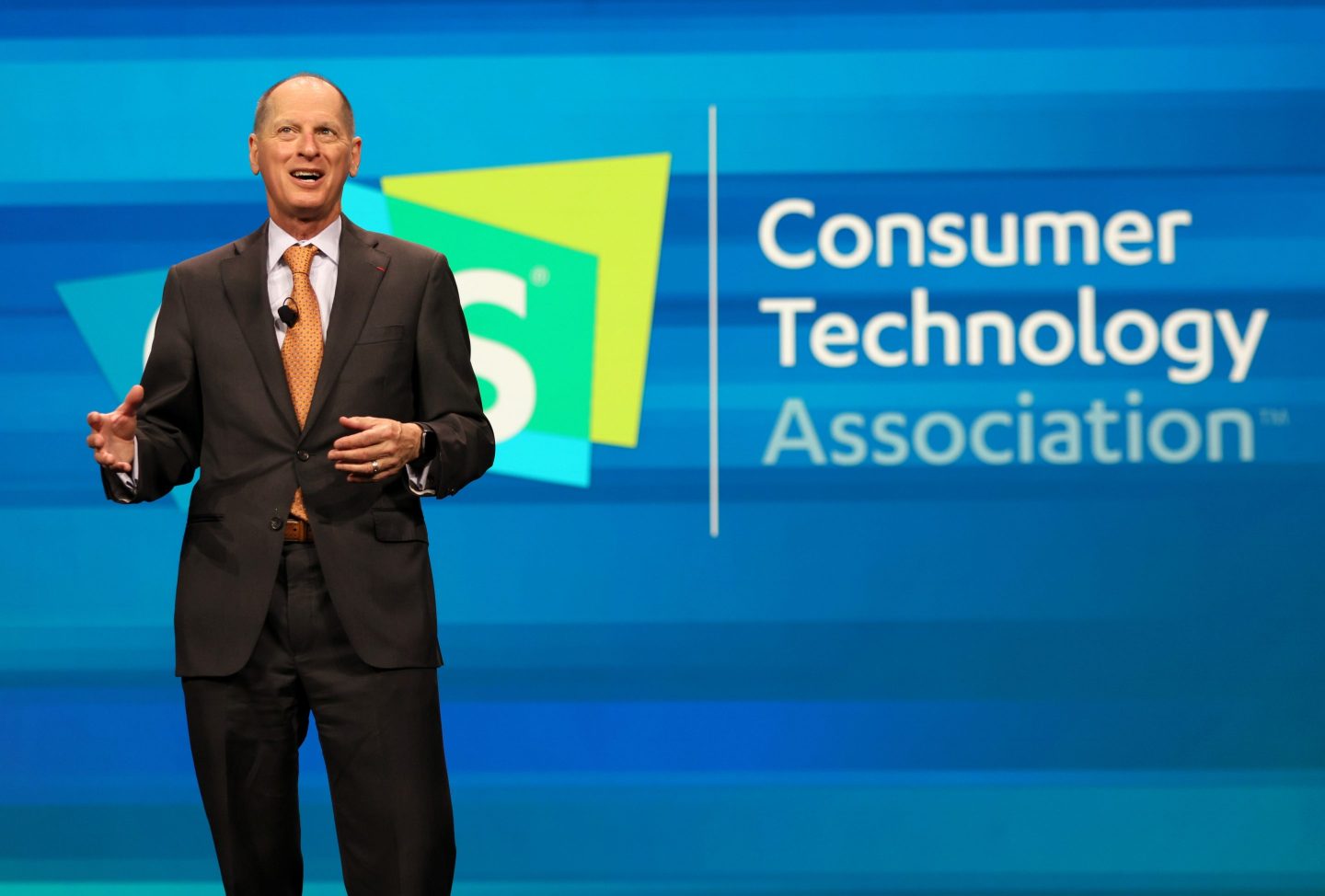经济困境期,精明的初创公司会脱颖而出

新企业是全球经济增长的秘密武器,它们能够促进创新,颠覆各行各业。全球初创公司共创造了近3万亿美元价值(超过法国的GDP),并吸引了数以十亿计美元的风险投资。但钱并不是关键。初创公司可以带来科技进步,让我们的生活变得更轻松、更安全、更有效率。
然而,随着经济学家和首席执行官们纷纷预测经济衰退,按照一位投资者的说法,指向初创公司的“资金水龙头”正在接近干涸。随着风险投资减缓和消费者支出减少,初创公司和新企业感受到了压力,但这并不意味着科技行业即将进入寒冬。
事实上,经济困境时期是精明的初创公司脱颖而出的机会。目前知名度最高的多个科技平台都诞生于2008年至2009年经济衰退之后。当时,创新者和创业者不得不冒险调整商业模式。
如果你在工作日阅读本文,它可能就是通过Slack推送给你。这家公司就诞生于2009年。WhatsApp和Instagram也是在2008年经济衰退最严重的时候成立。
你可能会想,这些公司当然能够幸存下来,因为它们规模庞大!但在经济衰退期间成功的不止是那些家喻户晓的知名品牌。2008年,Goal Zero的创始人罗伯特·沃克曼推出了公司的第一款产品——一款便携式太阳能发电设备。现在,该公司的产品已经销往全世界,为非洲、南亚和加勒比地区的村庄以及美国遭遇自然灾害之后缺电的地区,带来照明和电力。
对许多创始人来说,成功也意味着被收购。2008年,连续创业者卡迈克尔·罗伯茨参与创建了柔性电子传感器生产商MC10。十多年后,这家公司将数字生物标记物业务出售给医学科技巨头Medidata,将可穿戴传感器的应用领域拓展到临床研究。
因此,对于那些对科技业未来感到悲观的人们,我想说:你错了。科技创业者已经习惯了应对似乎难以应付的挑战。科技行业就是应该大刀阔斧地解决问题。
事实上,即使在繁荣周期,依旧会有75%的初创公司未能偿还投资者的资本。创建和发展一家新公司是一项巨大的挑战。成功者都有一个共同点:拥抱变革和推动业务转型的能力与意愿。初创公司的创业者有一种“忍者心态”,这种心态可以帮助一家公司顺利度过动荡的市场环境,了解客户的需求,并迅速抓住机会。
2021年,全球最有影响力的科技界活动消费电子展(CES)改为虚拟形式,事后有人质疑我们为什么还要决定举办线下活动。虽然有些公司选择不到拉斯维加斯参加线下活动,但绝大多数的参展商,尤其是初创公司和小企业表示,消费电子展对它们的业务至关重要。
初创公司的谨慎是自然的反应,尤其是在艰难时期。但过度谨慎可能让你错失发展业务和推广能够改变生活的技术的机会。不要将糟糕的经济环境作为退缩的借口。相反,要拥抱变革,并学会迅速调整。(财富中文网)
本文作者加里·夏皮罗(Gary Shapiro)现任消费者技术协会(Consumer Technology Association)总裁兼首席执行官、《纽约时报》(New York Times)的畅销书作家。消费者技术协会是美国1,500多家消费者技术公司的行业组织。他是《未来忍者:新创新时代的成功秘诀》(Ninja Future: Secrets to Success in the New World of Innovation)一书的作者。本文仅代表作者的个人观点。
Fortune.com上发表的评论文章中表达的观点,仅代表作者本人的观点,不代表《财富》杂志的观点和立场。
翻译:刘进龙
审校:汪皓
新企业是全球经济增长的秘密武器,它们能够促进创新,颠覆各行各业。全球初创公司共创造了近3万亿美元价值(超过法国的GDP),并吸引了数以十亿计美元的风险投资。但钱并不是关键。初创公司可以带来科技进步,让我们的生活变得更轻松、更安全、更有效率。
然而,随着经济学家和首席执行官们纷纷预测经济衰退,按照一位投资者的说法,指向初创公司的“资金水龙头”正在接近干涸。随着风险投资减缓和消费者支出减少,初创公司和新企业感受到了压力,但这并不意味着科技行业即将进入寒冬。
事实上,经济困境时期是精明的初创公司脱颖而出的机会。目前知名度最高的多个科技平台都诞生于2008年至2009年经济衰退之后。当时,创新者和创业者不得不冒险调整商业模式。
如果你在工作日阅读本文,它可能就是通过Slack推送给你。这家公司就诞生于2009年。WhatsApp和Instagram也是在2008年经济衰退最严重的时候成立。
你可能会想,这些公司当然能够幸存下来,因为它们规模庞大!但在经济衰退期间成功的不止是那些家喻户晓的知名品牌。2008年,Goal Zero的创始人罗伯特·沃克曼推出了公司的第一款产品——一款便携式太阳能发电设备。现在,该公司的产品已经销往全世界,为非洲、南亚和加勒比地区的村庄以及美国遭遇自然灾害之后缺电的地区,带来照明和电力。
对许多创始人来说,成功也意味着被收购。2008年,连续创业者卡迈克尔·罗伯茨参与创建了柔性电子传感器生产商MC10。十多年后,这家公司将数字生物标记物业务出售给医学科技巨头Medidata,将可穿戴传感器的应用领域拓展到临床研究。
因此,对于那些对科技业未来感到悲观的人们,我想说:你错了。科技创业者已经习惯了应对似乎难以应付的挑战。科技行业就是应该大刀阔斧地解决问题。
事实上,即使在繁荣周期,依旧会有75%的初创公司未能偿还投资者的资本。创建和发展一家新公司是一项巨大的挑战。成功者都有一个共同点:拥抱变革和推动业务转型的能力与意愿。初创公司的创业者有一种“忍者心态”,这种心态可以帮助一家公司顺利度过动荡的市场环境,了解客户的需求,并迅速抓住机会。
2021年,全球最有影响力的科技界活动消费电子展(CES)改为虚拟形式,事后有人质疑我们为什么还要决定举办线下活动。虽然有些公司选择不到拉斯维加斯参加线下活动,但绝大多数的参展商,尤其是初创公司和小企业表示,消费电子展对它们的业务至关重要。
初创公司的谨慎是自然的反应,尤其是在艰难时期。但过度谨慎可能让你错失发展业务和推广能够改变生活的技术的机会。不要将糟糕的经济环境作为退缩的借口。相反,要拥抱变革,并学会迅速调整。(财富中文网)
本文作者加里·夏皮罗(Gary Shapiro)现任消费者技术协会(Consumer Technology Association)总裁兼首席执行官、《纽约时报》(New York Times)的畅销书作家。消费者技术协会是美国1,500多家消费者技术公司的行业组织。他是《未来忍者:新创新时代的成功秘诀》(Ninja Future: Secrets to Success in the New World of Innovation)一书的作者。本文仅代表作者的个人观点。
Fortune.com上发表的评论文章中表达的观点,仅代表作者本人的观点,不代表《财富》杂志的观点和立场。
翻译:刘进龙
审校:汪皓
New businesses are the secret sauce for economic growth, catalyzing innovation, and shaking up industries. Globally, startups create nearly $3 trillion in value (more than the GDP of France) and attract billions in venture capital funding. And it’s not just about the money. Startups are also responsible for driving tech advances that make our lives easier, safer, and more productive.
However, with economists and CEOs predicting a recession ahead, the “firehose of money” pointed at startups, as one investor put it, is drying up. As VC funding slows, and consumers cut back on spending, startups and new businesses are feeling the pressure–but that doesn’t mean winter is coming for the tech industry.
In fact, tough economic times can be a differentiator for savvy startups. Several of today’s most recognizable tech platforms launched in the aftermath of the 2008-2009 recession, which forced innovators and entrepreneurs to take risks and adapt their business models.
If you’re reading this op-ed during the workday, it may have come your way via Slack–a company that got its start in 2009. WhatsApp and Instagram were also created at the height of the 2008 recession.
You may be thinking, well, of course, these companies survived–they’re huge! But it’s not just the big household names that found success in a recessionary period. In 2008, Goal Zero founder Robert Workman launched his company’s first product, a portable solar power generator. The company has since deployed its products across the globe, bringing light and power to villages in Africa, South Asia, and the Caribbean, as well as areas of the U.S. living without power after natural disasters.
For many founders, success can also mean acquisition. In 2008, serial entrepreneur Carmichael Roberts co-founded MC10, a manufacturer of flexible electronic sensors. Just over a decade later, the company sold its digital biomarker business to medtech giant Medidata, expanding the use of wearable sensors for clinical research.
So to those who are pessimistic about the future of our industry, I say: You’re getting it wrong. Tech founders are used to tackling seemingly impossible challenges. Our industry is meant to hack its way out of problems.
The reality is that even in a boom cycle, some 75% of startups will fail to return investors’ capital. Building and scaling a new company is a major challenge. Those that succeed all have one thing in common: the ability and willingness to embrace change and transform their business. Startup founders have a “ninja mindset” that allows a company to navigate a volatile market environment, understand what their customers want, and capitalize on opportunities at lightning speed.
After CES, the world’s most influential technology event went all-virtual in 2021, skeptics questioned our decision to move ahead with an in-person event. And while some companies chose not to join us in Las Vegas, overwhelmingly, exhibitors–particularly startups and small businesses–cited the CES platform as critical to their business.
It’s natural for startups to be cautious, especially when times get tough. But being too cautious can mean missed opportunities to grow your business and propel life-changing technologies forward. Don’t use a bad economy as an excuse to pull back. Instead, embrace change and learn to pivot fast.
Gary Shapiro is president and CEO of the Consumer Technology Association (CTA), the U.S. trade association representing more than 1,500 consumer technology companies, and a New York Times bestselling author. He is the author of the book Ninja Future: Secrets to Success in the New World of Innovation. His views are his own.
The opinions expressed in Fortune.com commentary pieces are solely the views of their authors and do not reflect the opinions and beliefs of Fortune.













